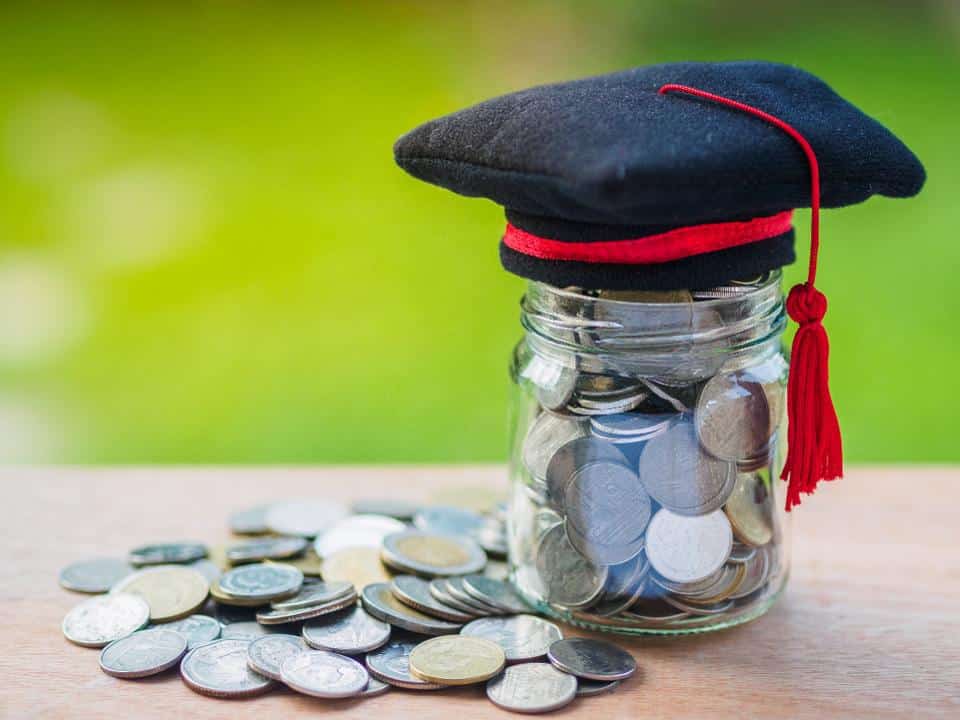Your Guide to Paying Off Student Loans Faster

Cap? Check. Gown? Check. Diploma? Check. Plan for paying off your student loans? Wait, what?
Student loans are an especially intimidating source of debt. When you embarked on your collegiate journey, your student loans represented something that was coming “someday” –– something you just did not need to worry about in the present moment.
But suddenly, that day has arrived, and you might be totally panicking, and for good reason. This generation has more student loan debt than any other before it, with national student debt totaling roughly 1.6 trillion dollars and not everyone attended tuition-free colleges. That amount is enough to strike fear into the hearts of even the bravest post-graduates.
Arming yourself with knowledge will help you prepare to pay off your student loans with confidence and pragmatism. Below, check out our tips for dealing with student debt. Think of it as Student Loans 101 to help manage your loans.
How to Pay Off Student Loans Fast

Here is a list of ways to help you pay off your student loans.
1. Create an Action Plan
Effectiveness level: High
The first step to dealing with your student loans is to gather all the information and formulate a plan. Figure out when you need to start paying off your loans –– typically six months after you have graduated. If you do not already know, find out exactly how much you owe. Interest can accrue on student loans even while you are in school, so it is likely that this amount is greater than you remember it being. Interest rates on student loans tend to be fairly high, so this number will also affect how much you need to pay each month to make a dent. Luckily, your loan payback homepage can help you calculate how much you need to pay monthly over a 30 year period.
When you gather all the loan information, use your monthly income and any savings to figure out what you can afford to pay each month. Be sure to factor in your guaranteed monthly expenses, like groceries, rent, and utilities. And while it may seem lofty, you should also set aside a chunk each month to go to savings. You might think saving is a stretch when there are loans to pay off, but your 30 year-old self will thank you when they start thinking about purchasing a home. It might be helpful to set some financial goals to keep you motivated on your money saving journey.
Once you have every dollar accounted for, make a budget. This budget will be the cornerstone of your financial future. The hardest part? Sticking to it.
2. Stick to your Budget
Effectiveness level: High
There is nothing more important than sticking to your budget. Hopefully you have set aside a little money to have fun every month, but try your hardest not to exceed that amount. Look for budget options when grocery shopping, and keep eating out to a minimum. Especially if you just started a new job, you will see that your new income will accrue much faster if you keep spending to a minimum every month. Ultimately, the rewards of being frugal will benefit you more than those tempting impulse purchases.
While you may feel like self-inflicted financial constraints make you boring and old, they will make you a lot more comfortable when you actually become boring and old down the road.
3. Make Extra Payments When Possible
Effectiveness level: High
If you get a big bonus at work or a generous Christmas cash gift from mom and dad, consider putting it towards your student loan debt. Remember, the lower the number in your debt account, the slower the interest accrues. Any large chunk you can put towards your loans will go a long way towards relieving debt-related stress. You can also learn how to make extra cash on the side with side hustles.
You can also find ways to make money fast online:
4. Check All Your Options
Effectiveness level: Medium
The student loan crisis is worse than ever, with a rising number of college grads falling behind on repaying their loans.
More than 1 million Americans a year are defaulting on their federal student loans!
If you’re in this boat, it might be time to think about refinancing. Doing so can help you pay off your student loans faster and save money in the long run.
Remember, sometimes you can make extra money just by finding new ways to save.
A big one that many people fail to remember is that you can save around $300/month just by refinancing your student loan debt.
5. Refinancing Your Student Loans
Effectiveness level: High
According to Consumer Finance, honest lenders will warn you about the benefits you are giving up when refinancing out of a federal student loan. If you have a secure job, emergency savings, strong credit, and are unlikely to benefit from forgiveness options, it may be a choice worth considering if you're looking to lower your payments.
Interested in refinancing your student loans right now?
Below are the top 4 lenders for 2021 (get estimated savings in under 2 minutes):
- SoFi (Rates as low as 2.58% — 7.25%)
- Earnest (Rates as low as 2.57% — 6.32%)
- LendKey (Rates as low as 2.56% — 7.82%)
If you need some more advice on paying student loans fast, check out what Dave Ramsey has to say in the video below:
People also ask
There a few ways to pay off your student loans fast that include making extra payments the right way, refinance your student loans, enroll in autopay, make biweekly payments, stick to the standard repayment plan and use ‘found' money.
PSLF forgives the remaining balance on your Direct Loans after you have made 120 qualifying monthly payments under a qualifying repayment plan while working full-time for a qualifying employer. Learn more about the PSLF Program to see whether you might qualify.
Having late payments on your credit report can negatively impact your credit score and make it more difficult to open credit cards, borrow money or even get an apartment. Private student loans enter default after 120 days, and Federal Perkins loans can enter default immediately after a missed payment.
Related

